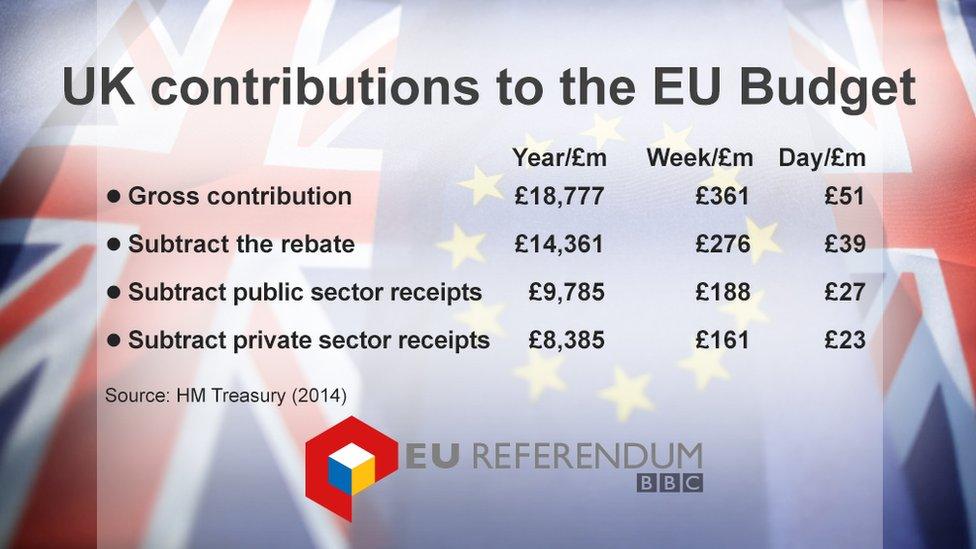Brexit: Government guarantee for post-EU funds
- Published
- comments
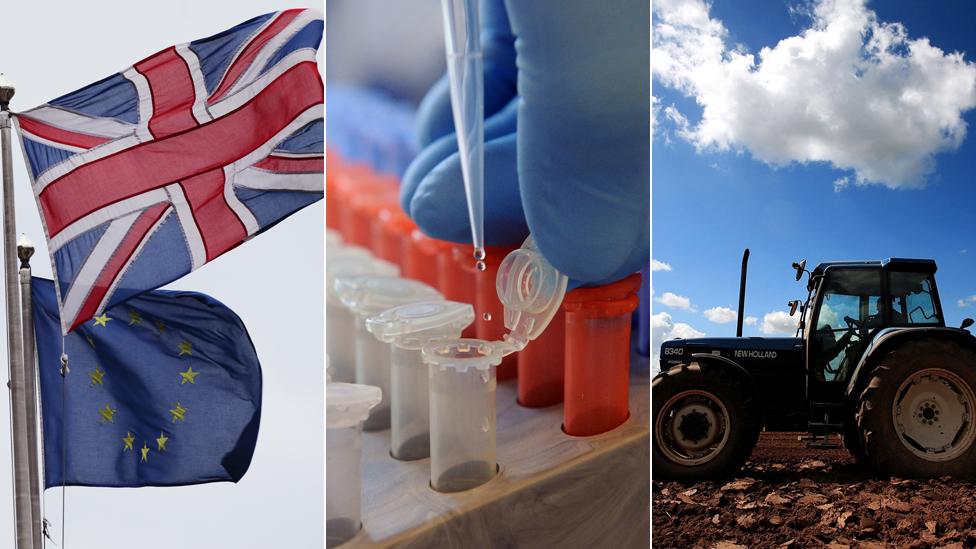
EU funding for farmers, scientists and other projects will be replaced by the Treasury after Brexit, Chancellor Philip Hammond has said.
In a move which could cost up to £6bn a year, the Treasury will guarantee to back EU-funded projects signed before this year's Autumn Statement.
Agricultural funding now provided by the EU will also continue until 2020.
But critics said the guarantee does not go far enough and there was "continued uncertainty".
Voters backed leaving the EU in the 23 June referendum but Prime Minister Theresa May has indicated the UK government will not trigger Article 50, which would begin a two-year process to leave, during 2016.
Mr Hammond said EU structural and investment fund projects signed before the Autumn Statement later this year, and Horizon research funding granted before leaving the EU, will be guaranteed by the Treasury after the UK leaves.
The EU's 80bn euro (£69bn) Horizon 2020, external programme awards funding for research and innovation and is open to UK institutions while the country remains a member.
'Stability and certainty'
The chancellor said the government was "determined to ensure that people have stability and certainty in the period leading up to our departure from the EU".
Shadow Chancellor John McDonnell said: "We welcome Phillip Hammond's decision to agree with Labour's calls for EU structural funds to be protected post-Brexit. This will help to give some reassurance to communities and businesses right the way across the UK".
But he added that Labour "urgently" want to hear the chancellor "speak up on the importance of keeping Britain's membership of the European Investment Bank".
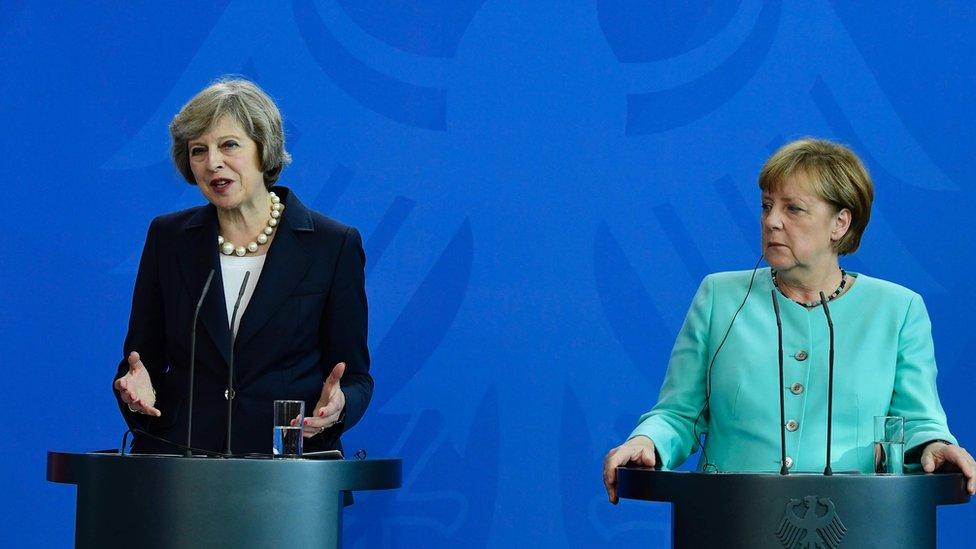
During a visit to Berlin in July, Theresa May [pictured with German Chancellor Angela Merkel] indicated the UK would not trigger Article 50 during 2016
The Treasury said it would assess whether to guarantee funding for certain other projects "that might be signed after the Autumn Statement, but while we remain a member of the EU".
Organisations such as universities bidding for EU funding before the UK leaves would have that money underwritten by the government.
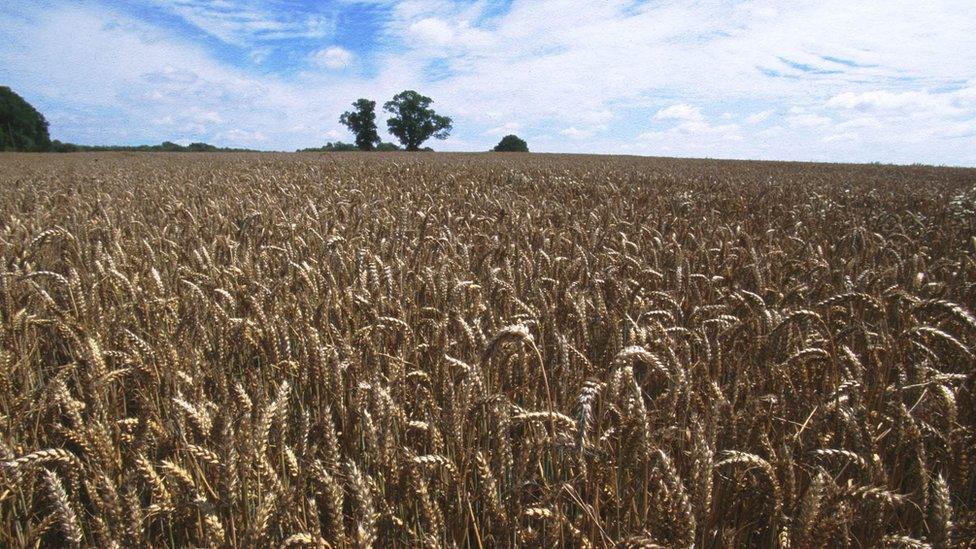
The National Farmers' Union (NFU) hailed the announcement as "positive"
At present, farmers receive subsidies and other payments under the EU's Common Agricultural Policy (CAP).
They get about £3bn a year in subsidies, with the biggest farmers pocketing cheques of £1m. The grants are given for owning land and also taking care of wildlife.
The National Farmers' Union (NFU) said the Treasury's announcement was "positive" for farming.
Its president Meurig Raymond said: "I hope that this short-term certainty will help to deliver longer-term confidence and this is exactly what farm businesses need now."
The Country Land and Business Association (CLA), which represents more than 32,000 farmers, landowners and other rural businesses, said the move was "vitally important", external but called for a "world-leading" domestic funding policy to be drawn up and ready for 2021.
The structural and investment funds that will be guaranteed include CAP pillar two, the European Social Fund, the European Maritime and Fisheries Fund and the European Regional Development Fund, including European Territorial Cooperation.
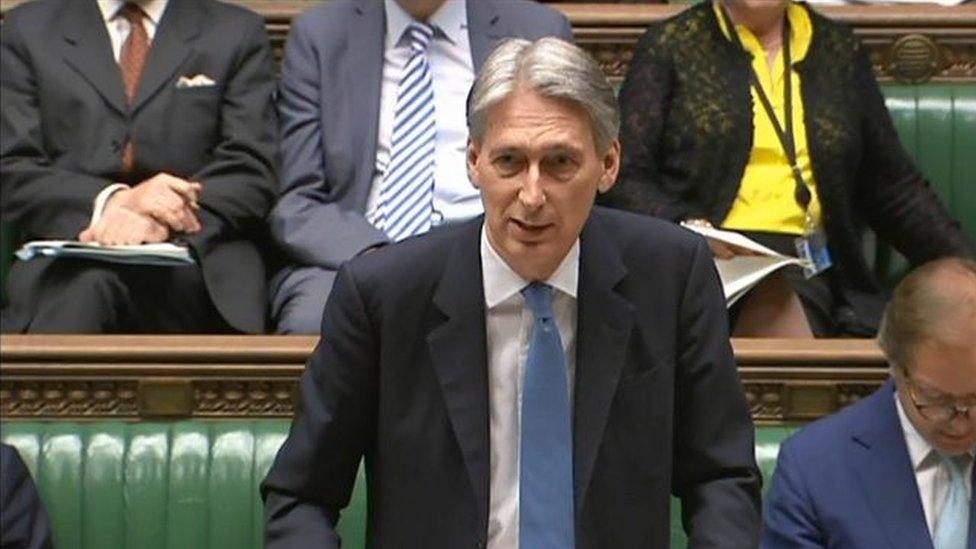
The chancellor will deliver his Autumn Statement to MPs later this year
Examples of projects that have received or are due to receive regional development fund money include:
£5m for the Graphene Engineering Innovation Centre at the University of Manchester
£9m for the manufacturing growth programme to support areas in the Midlands, Yorkshire and the Humber and the East of England
£3m for a new life sciences incubation and innovation centre at Porton Down in Wiltshire
'Welcome news'
President of the Royal Society - a fellowship of many of the world's most eminent scientists - and Nobel laureate, Sir Venkatraman Ramakrishnan, also welcomed the funding announcement.
He told BBC Radio 4's Today programme it was something "we have been arguing consistently for" since the referendum result.
But Sir Venkatraman added: "Our hope is that any grants that are awarded while we are still in the EU should be allowed to complete."
'No long-term certainty'
Scotland's Finance Secretary Derek Mackay said the announcement "falls far short" of what is needed, saying: "A limited guarantee for some schemes for a few short years leaves Scotland hundreds of millions of pounds short of what we would receive as members of the EU."
Welsh First Minister Carwyn Jones said: "This guarantee only covers about half of the regional funding due to Wales and does not provide the long-term certainty needed and which was promised ahead of the referendum."
And Northern Ireland Finance Minister Mairtin O Muilleoir said that while some applicants for EU funds will be helped, it left a "question mark over scores of other vital projects".
Lord Porter, chairman of the Local Government Association, said the funding commitment "falls well short" and stressed that "local areas need certainty around the future of all of the £5.3bn in EU regeneration funding promised to them by 2020".
"The continued uncertainty risks damaging local regeneration plans and stalling flagship infrastructure projects, employment and skills schemes and local growth," he said.

Royal Society president Sir Venkatraman Ramakrishnan said the move was "welcome news" for UK scientists
The National Trust said that there was "continued uncertainty should new applications be restricted beyond this autumn".
British Chambers of Commerce acting director general Adam Marshall called for "the delays that many worthwhile projects face in the approval process" to be "cleared away - especially given the fact that the Treasury guarantee only covers projects signed by this year's Autumn Statement".
The UK currently pays money into the EU budget, which will stop once it formally leaves.
In 2015 the UK Government paid in £13bn; EU spending on the UK was £4.5bn, meaning the UK's net contribution was estimated at about £8.5bn, or £161m a week.
The UK private sector receives a further £1-1.5bn annually in EU funding.
- Published1 September 2016
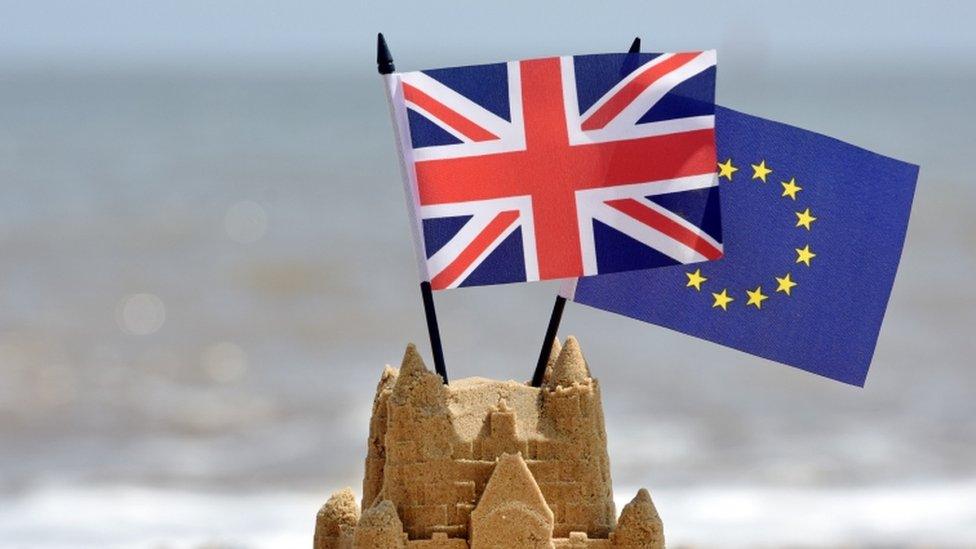
- Published13 August 2016
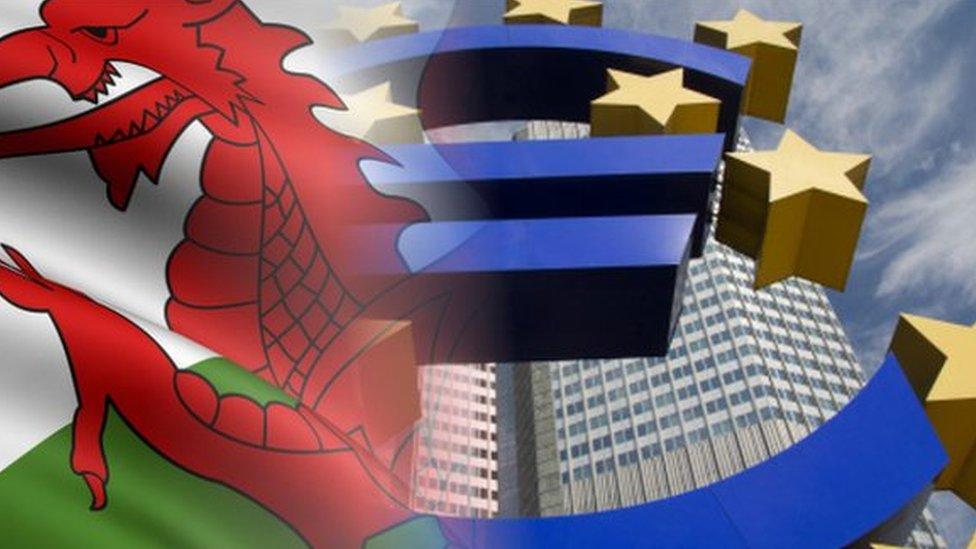
- Published22 July 2016
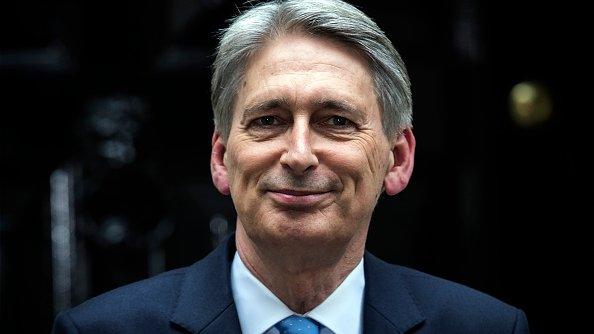
- Published20 July 2016
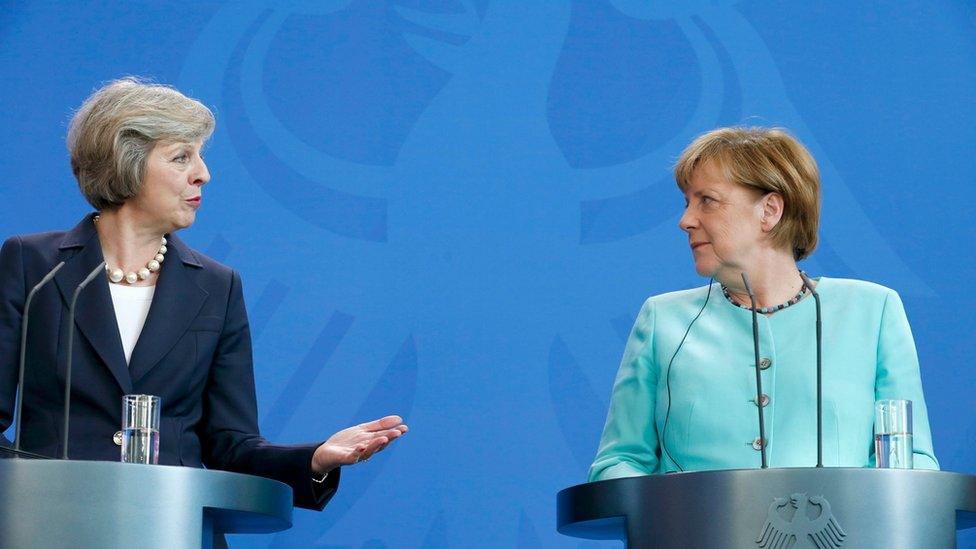
- Published15 July 2016
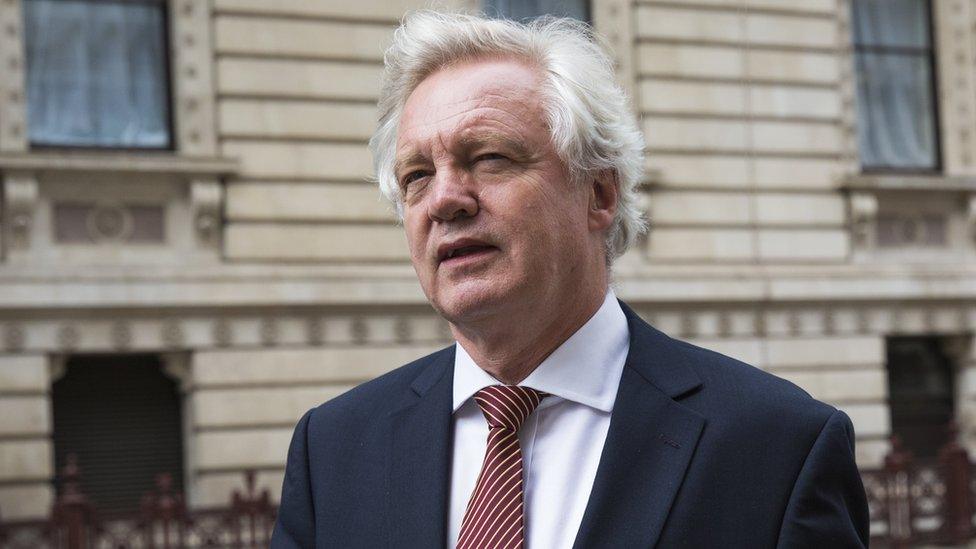
- Published24 July 2016
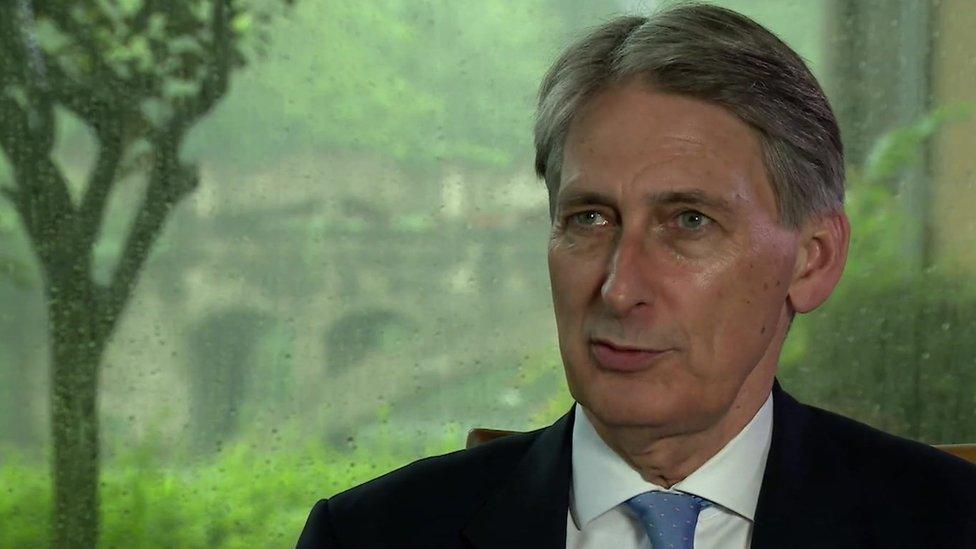
- Published5 April 2016
